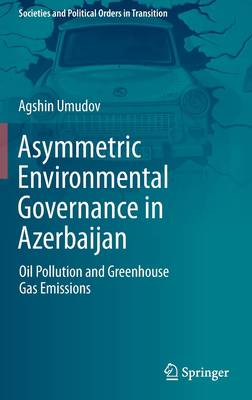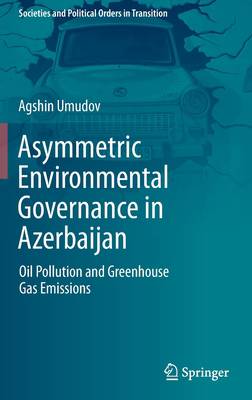
- Retrait gratuit dans votre magasin Club
- 7.000.000 titres dans notre catalogue
- Payer en toute sécurité
- Toujours un magasin près de chez vous
- Retrait gratuit dans votre magasin Club
- 7.000.0000 titres dans notre catalogue
- Payer en toute sécurité
- Toujours un magasin près de chez vous
Asymmetric Environmental Governance in Azerbaijan
Oil Pollution and Greenhouse Gas Emissions
Agshin UmudovDescription
This book examines why authoritarian governments are willing to address environmental problems that have an international impact, such as CO2 emissions, but are reluctant to address problems that have only a domestic impact. In a case study of Azerbaijani oil politics, it demonstrates how the incumbent Azerbaijani regime has taken important measures trying to address CO2 emissions while ignoring the damage caused by oil pollution on the Caspian coast. The book argues that resource-rich authoritarian governments are eager to join international environmental initiatives to improve their image, but they address domestic environmental issues mainly if they threaten their hold on power.
This book is an important contribution to scholarship on environmental governance in the post-Soviet space, an area that is poorly researched. Therefore, it is a must-read for researchers and scholars interested in post-Soviet studies, as well as in the nexus between mineral-rich regions and how social policy is created, e.g., environment, education, and healthcare. In addition, this book will be of tremendous importance for policymakers and international organizations as it looks into the motivation of authoritarian states in the post-Soviet space for environmental measures.
Spécifications
Parties prenantes
- Auteur(s) :
- Editeur:
Contenu
- Nombre de pages :
- 208
- Langue:
- Anglais
- Collection :
Caractéristiques
- EAN:
- 9783030821159
- Date de parution :
- 15-09-21
- Format:
- Livre relié
- Format numérique:
- Genaaid
- Dimensions :
- 156 mm x 234 mm
- Poids :
- 498 g

Les avis
Nous publions uniquement les avis qui respectent les conditions requises. Consultez nos conditions pour les avis.






